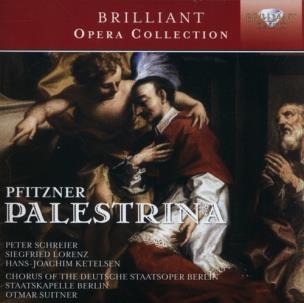- Regulamin
- Koszty dostawy
- Kontakt
- Dziś w ofercie 236 465 produktów
KSIĄŻKI
- Albumy
- Beletrystyka
- Biografie
- Dla dzieci i młodzieży
- Edukacja
- Ekonomia i biznes
- Ezoteryka
- Historia
- Informatyka
- Kalendarze
- Komiksy
- Kryminał i sensacja
- Kultura i sztuka
- Literatura faktu
- Literatura kobieca
- Literatura piękna
- Medycyna
- Nauka języków obcych
- Nauki humanistyczne
- Nauki przyrodnicze
- Nauki ścisłe
- Podręczniki
- Poradniki
- Prawo i administracja
- Przewodniki i podróże
- Psychologia
- Religia
- Sport
- Technika
- Zdrowie i uroda
ZABAWKI
- Artykuły dla niemowląt
- Bączki
- Bujaki i skoczki
- Ciągnij / pchaj
- Dla niemowlaka
- Grzechotki i gryzaki
- Karuzele i pozytywki
- Maty i centra zabaw
- Projektory i lampki
- Sortery i piramidki
- Zabawki
- Edukacyjne i kreatywne
- Figurki
- Klocki
- Lalki
- Pojazdy
- Pluszaki i maskotki
- Sport i rekreacja
- Zabawa w dom
- Zabawki drewniane
- Puzzle
- Do 200 elementów
- 201-500 elementów
- 501-1000 elementów
- Ponad 1000 elementów
- Puzzle 3D
ART. PAP
- Artykuły biurowe
- Artykuły piśmiennicze
- Bloczki i kartki samoprzylepne
- Dziurkacze
- Kalkulatory
- Nożyczki i nożyki
- Skoroszyty
- Teczki
- Wizytowniki
- Zszywacze
- Artykuły szkolne
- Akcesoria szkolne
- Modelowanie
- Notatniki i zeszyty
- Piórniki
- Plecaki i torby
- Pojemniki na śniadanie
- Pomoce naukowe
- Przybory matematyczne
- Przybory rysunkowe
- Upominki i gadżety
- Akcesoria do książek
- Artykuły balowe
- Breloki i zawieszki
- Drobiazgi, różności
- Kubki
- Oferta Świąteczna
- Papeteria, kartki i naklejki
- Skarpetki Many Mornings
- Upominki
GRY
MULTIMEDIA
- Audiobooki
- Beletrystyka
- Biografie i wspomnienia
- Dla dzieci i młodzieży
- Fantastyka
- Filozofia i religia
- Historia
- Literatura faktu i reportaż
- Poradniki
- Sensacja i kryminał
- Filmy DVD/BD
- Animowane
- Biograficzne
- Fantasy
- Horrory
- Komedie
- Romanse
- Science Fiction
- Sensacyjne / kino akcji
- Thrillery
- Muzyka CD
- Alternatywna
- Blues
- Dla dzieci
- Jazz
- Klasyczna
- Piosenka aktorska i poetycka
- Pop
- Rock
- Świąteczna i kolędy
- Akcesoria GSM
- Głośniki
- Kable i adaptery
- Klawiatury
- Myszy
- Słuchawki
PROMOCJE
ZDROWIE
LEGO

Brilliant Opera Collections: Pfitzner: Palestrina
Wydawca:
Brilliant Classics
EAN:
5028421951133
oprawa:
Plastikowa
format:
14.0x12.0cm
język:
angielski
rok wydania:
2016
(0) Sprawdź recenzje
Opis produktu
Zasady bezpieczeństwa
Hans Pfitzner’s musical legend Palestrina was first performed during the height of the First World War, a period when sensitive minds such as Pfitzner’s felt uneasy about the cultural scene of bourgeois society. Even then, when the headlong descent into Nazi tyranny was still a long way off, the composer saw himself as an artist representing an era that was rapidly drawing to its close. He therefore projected his own situation onto the historical personality of the 16th-century composer Giovanni Pierluigi da Palestrina, who was credited with saving the art of contrapuntal church music during the Council of Trent.
Like all artists, the composer treated the facts rather freely to suit his own artistic intentions. He recycles thematic material from Palestrina’s Missa Papae Marcelli, the work that allegedly settled the argument back in the uncertain days of the 16th century, after the upset of Martin Luther. As the librettist as well as composer, Pfitzner certainly moulds the truth to suit his own situation, and he backs up his artistic licence with some solemn, powerful and audaciously pastiche music, imbued with archaisms borrowed from Palestrina and his contemporaries. He adds to these Wagnerian motifs, such as the bells that symbolise the Catholic Church. Pfitzner portrays a composer who refuses to allow his music to be abused for bolstering the power of the Church. Palestrina’s crisis, brought on by the loss of his office, his faith and his wife, as well as by the new style emanating from Florence, reflects the crisis of Pfitzner’s own world in which art is needed only to preserve the existing order, not to seek out new horizons.
This dramatic opera was recorded live in the Schauspielhaus, Berlin, giving it a powerful sense of space and atmosphere. Otmar Suitner is a conductor of great experience and sympathy with the work, and the title role is played by Peter Schreier who “sings with great intelligence, deep expression and care for words, and with the slightly piercing, fundamentally German tenor sound for which the role was surely conceived“ (Gramophone).
First performed in 1917 in Munich (conducted by Bruno Walter), Pfitzner’s opera on the great 16th-century composer Palestrina became popular with those in German musical society who had become hostile to the direction which Schoenberg and Busoni had taken. Composed in “traditional” late romantic style it has a particularly Wagnerian flavour, a kind of catholic “Meistersinger” with hints of Palestrinian counterpoint and plainchant.
A superb cast in this exciting live recording from Berlin: Peter Schreier, Siegfried Lorenz, Rosemarie Lang and the Staatskapelle Berlin conducted by the great Otmar Suitner, a specialist in late romantic repertoire.
The libretto is available online at www.brilliantclassics.com, the booklet contains liner notes on the music.
Other information:
Recorded live in Berlin in 1986 and 1988.
CENA:
33,83
zł
Cena detaliczna:
39,90 zł
15%
rabatu
Najniższa cena z ostatnich 30 dni: 33,91 zł
Produkt niedostępny
Uwaga!!!
Ten produkt jest zapowiedzią. Realizacja Twojego zamówienia ulegnie przez to wydłużeniu do czasu premiery tej pozycji. Czy chcesz dodać ten produkt do koszyka?


Wybierz wariant produktu
